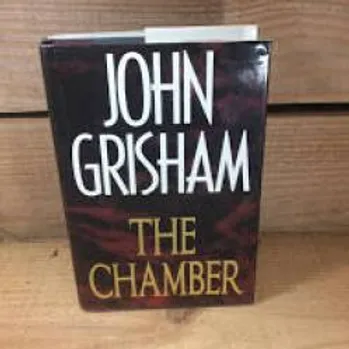As the author of two mystery/suspense/thriller novels – the second just completed and shopped to publishers – I am reluctant to admit that I had never read a John Grisham novel until recently, when I finished The Chamber.
Grisham is a master of suspense, intrigue and realism. Published in 1994, the book paints a searing picture of the Deep South of decades past – the attitudes, the physical environment, the historical context. With deep insights into human behavior, it powerfully evokes the mental and emotional makeup of a racist and the devastating impact he has on his entire family.
Grisham, formerly an attorney, presents the legal processes sufficient to render the case believable, but not so detailed as to be boring. Though bountifully entertaining, the book is much more as it knowingly realizes the social milieu of time and place.

John Grisham
The offices of a Jewish civil rights lawyer in a small Mississippi town are bombed, critically injuring him and killing his two children. Sam Cayhall is one of the three perpetrators, and plans to set the bomb off in early morning, before the offices are occupied. When he discovers that Rollie Wedge has used a timing device to make it go off after people have arrived at the offices, he is shocked, but does nothing.
Cayhall is arrested, is exonerated, but later convicted of the crime and sent to death row. A young attorney from a large Chicago firm wins the assignment of defending him. The attorney is Adam Hall, Cahall’s grandson. He stays in the town with his aunt, Cahall’s daughter. She turns out to be alcoholic, and goes into treatment as the time for her father’s execution at a Mississippi prison nears.
The Chamber keeps the reader riveted in anticipation of whether Adam will avert the gas chamber for Cayhall, who is convincingly portrayed as having remorse for his past deeds as a Ku Klux Klan member but has utter contempt for the justice system. Rollie Wedge reappears, and has gotten into the aunt’s house while she is away. As the execution date nears, Adam is dismayed that she doesn’t come to visit her father.
And this is where the novel has a weak link. Alert readers will be fully aware of it, and feel let down when they find that it never is resolved. Everything leading to the execution date is suspensefully realized, the characters, situations and settings vividly brought to life, but the ending is a disappointment. It’s the reader who’s left hanging.
Overall, however, the book was so compelling, Grisham’s humanity so moving, that I will be checking out others among his many novels.

